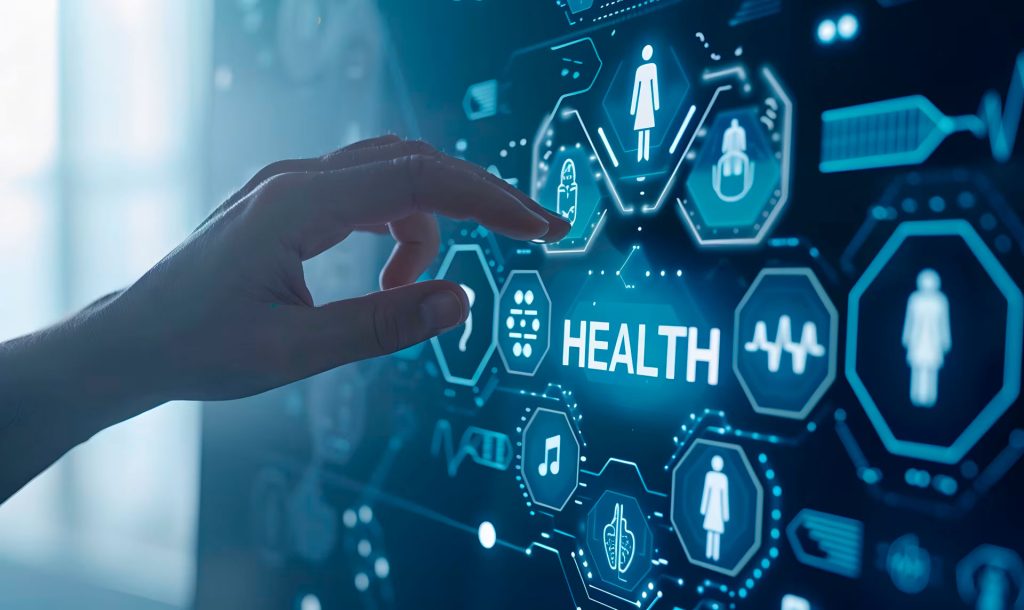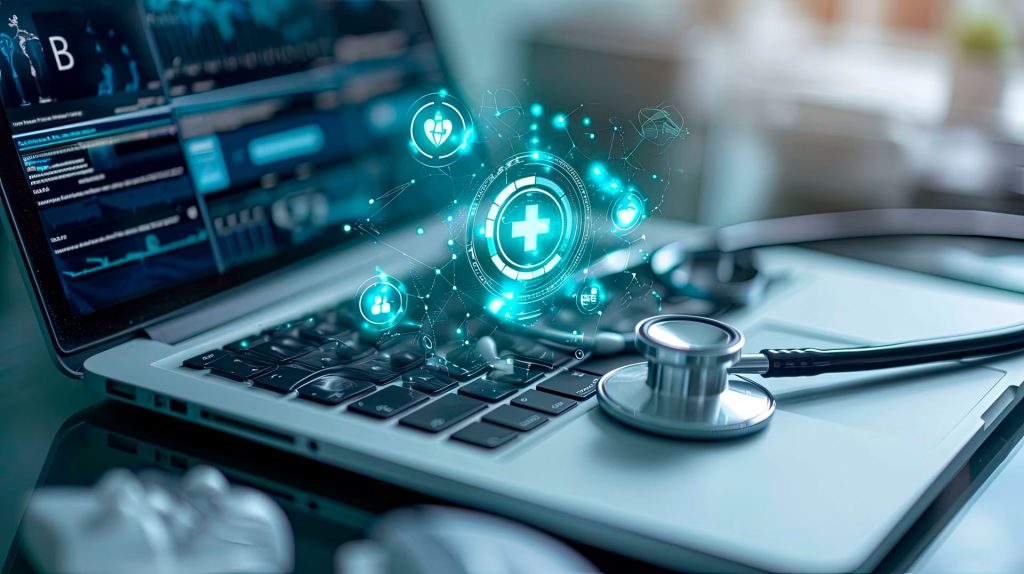Innovative web application transforms healthcare by integrating generative artificial intelligence for analyzing patients’ historical data
The digital transformation in healthcare is redefining how medical investigations are conducted. Today, with enhanced data processing capabilities, various resources are available to ensure quicker services, personalized approaches, and greater accuracy in both diagnostics and treatments. Continuous improvement in this sphere is evident in one of the world’s best hospitals.
A reference institution in Brazil and globally, this hospital is focused on continuously innovating its processes and services. With the support of act digital, the hospital has rapidly incorporated new technologies into its patient history tracking system. Through this collaboration, a web application was developed that allows quick access to medical records.
As a result of this collaboration, a web application was developed that allows rapid access to medical records. An innovative feature of this system is that it integrates generative artificial intelligence provided by OpenAI. This innovation enables professionals not only to quickly access all patient information but also to view this data efficiently and organized, with the added support of generative AI in interpreting cases.
The implementation of this solution has brought significant qualitative results, with a notable case where AI assisted in the precise identification of a rare disease in a child, providing new perspectives in the diagnostic process. These advances highlight the transformative potential of technology in medical practice, offering a robust tool for the continuous improvement of patient care.

Recognized as one of the world’s best hospitals by Newsweek’s The World’s Best Hospitals 2024 list, the hospital is known for its excellence, innovation, and commitment to quality and safety in healthcare. The institution excels not only in cutting-edge medical care but also in knowledge production and the implementation of advanced solutions, such as artificial intelligence, to continuously improve patient experience and treatment effectiveness.
The hospital is more than a medical center; it is an integrated health system offering a complete range of services that includes promotion, prevention, diagnosis, treatment, and rehabilitation. This comprehensive model, coupled with its involvement in education and research, strengthens its position as a reference for excellence even beyond Brazil. With four broad fields of operation—assistance, teaching, research, and social responsibility—the institution stands out for its leadership and innovation in medical-hospital care.
The ability to quickly access and analyze patient histories is crucial for accurate diagnoses and effective treatments. In this context, the institution recognized the need for an advanced system that allowed for more detailed and organized monitoring of medical records.
The main requirement was to develop a solution that integrated and optimized medical data, facilitating access and interpretation of information by healthcare professionals. The challenge was to offer technological resources that enabled doctors to quickly identify all relevant data on patient histories, ensuring agility and precision in the evaluation process and clinical decision-making.
Facing these challenges, act digital and the hospital’s IT team developed a web application that has incorporated new technologies and functionalities as technological resources evolve. Today, this solution allows the institution’s doctors to efficiently access and monitor the complete history of patients. act digital primarily focused on creating an intuitive and responsive interface.
The developed web system enables searching for medical records, displaying a detailed timeline of all treatments and procedures performed on the patient, including surgeries, exams, X-rays, and medical notes. One of the most recent innovations incorporated into the project is the use of generative artificial intelligence provided by OpenAI.
This feature assists doctors in analyzing medical record data, processing large volumes of information, and providing quick answers to specific questions, improving precision and speed in clinical evaluations. The development of this tool was carried out with the direct participation of OpenAI specialists, ensuring that the AI was aligned with the hospital’s objectives with high levels of accuracy and confidentiality.

The implementation of the new medical record monitoring system has been widely accepted and well-received by the doctors using it. The positive feedback reflects the system’s effectiveness and practicality, especially with the incorporation of generative artificial intelligence, which is being tested by a select group of professionals.
A noteworthy qualitative result: using generative AI, the medical team accurately diagnosed a rare health issue in a child. The analysis of the patient’s historical data, combined with artificial intelligence, provided new perspectives that were crucial in the diagnostic process, later confirmed by clinical examination and laboratory tests. This emblematic case highlights the system’s potential to transform medical practice and improve patient care.
Our expertise in technology and innovation enables us to develop advanced systems and solutions that support medical care work, optimizing operational processes and enhancing accessibility to healthcare services. We use cutting-edge technologies such as predictive models, proactive data analysis, and personalized journeys to provide significant benefits to healthcare institutions and their patients.
Our core technologies include Big Data, cognitive computing, artificial intelligence, telemedicine, robotic process automation (RPA), and application programming interfaces (APIs). Our specialized team collaborates with clients to understand their specific needs and develop tailored solutions that increase efficiency, reduce costs, and improve the quality of care. Integrating these technologies allows healthcare institutions to transform their operations and offer more precise and effective care.
Digital transformation in healthcare is already a reality, and using generative AI to optimize patient data monitoring is just one part of it. Join this change! Contact our specialists and see how we can help your institution reach new heights of excellence and innovation.